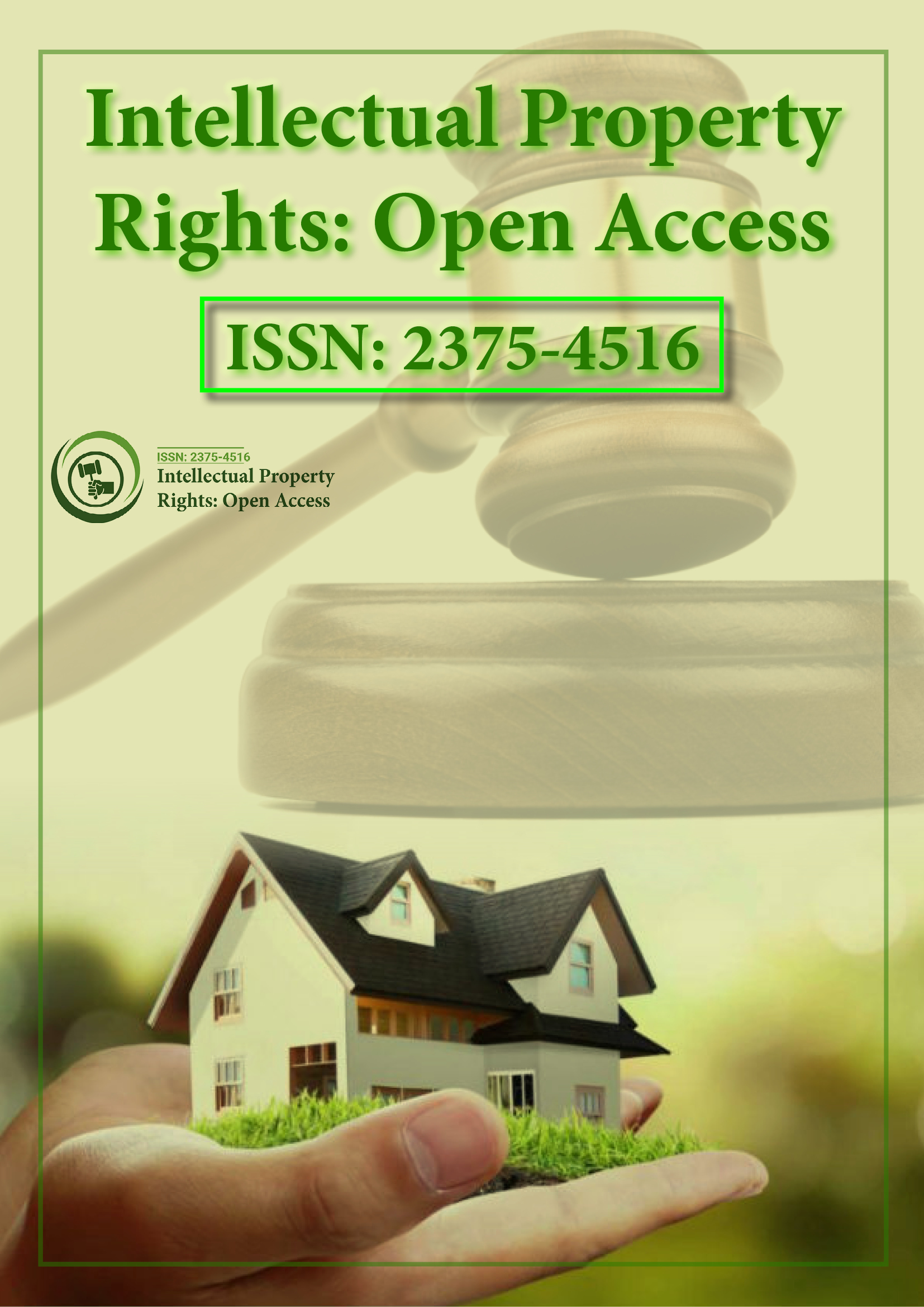Indexed In
- Open J Gate
- RefSeek
- Hamdard University
- EBSCO A-Z
- OCLC- WorldCat
- SWB online catalog
- Publons
Useful Links
Share This Page
Journal Flyer

Open Access Journals
- Agri and Aquaculture
- Biochemistry
- Bioinformatics & Systems Biology
- Business & Management
- Chemistry
- Clinical Sciences
- Engineering
- Food & Nutrition
- General Science
- Genetics & Molecular Biology
- Immunology & Microbiology
- Medical Sciences
- Neuroscience & Psychology
- Nursing & Health Care
- Pharmaceutical Sciences
Perspective - (2022) Volume 10, Issue 3
Privacy law in Different Countries
John Emest*Received: 20-Jul-2022, Manuscript No. IPR-22-17778; Editor assigned: 25-Jul-2022, Pre QC No. IPR-22-17778(PQ); Reviewed: 08-Aug-2022, QC No. IPR-22-17778; Revised: 16-Aug-2022, Manuscript No. IPR-22-17778(R); Published: 23-Aug-2022, DOI: 10.35248/2375-4516.22.10.208
About the Study
Privacy law is the body of law that deals with the regulation, storing, and exploitation of in-person recognizable data, personal tendencies data, and money data of people, which might be collected by governments, public or non-public organizations, or different people.
Privacy laws in different countries:
China’s Personal Data Protection Law, which acts as an associate's degree omnibus knowledge privacy rulebook, comes into force on Nov. 1, 2021. Previously, knowledge privacy in China was governed by a patchwork of various laws, but the PIPL now provides an overarching knowledge privacy law to demonstrate to within the first instance. Crucially, the PIPL additionally has extra-territorial impact, so it governs the process of non-public data of people settled in China, notwithstanding whether or not the entities processing that data are located in China.
Much of the PIPL has been supported by the principles and provisions of the EU General Knowledge Protection Regulation. That being said, the PIPL is neither as prescriptive nor anywhere close to as careful as the GDPR. The PIPL instead provides a framework of, for the most part, high-level knowledge privacy obligations and is predicted to be supplemented by steering from the Chinese authorities.
Australia regulates data sequestration and protection through a blend of civil, state, and home laws. The Civil Sequestration Act 1988 and the Australian sequestration principles contained in the sequestration Act apply to private sector realities, corporates with a periodic development of at least AU $3 million, and all Commonwealth Government and Australian Capital Territory Government agencies.
The sequestration Act regulates the running of particular information by applicable realities, and under the sequestration Act, the sequestration Commissioner has authority to conduct examinations, including own stir examinations, to apply the sequestration Act and seek civil penalties for serious and obvious breaches or for repeated breaches of the APPs where an reality has failed to apply remedial measures.
Most countries and homes in Australia have their own data protection legislation applicable to applicable state or territory government agencies and private businesses that interact with state and territory government agencies.
The common law, laws passed by the Parliament of North American nations, several provincial legislatures, as well as the Canadian Charter of Rights and Freedoms all influence Canadian privacy law. Ironically, Warren and Brandeis can be credited with developing Canada's legal understanding of privacy, as well as the most recent legal Western views of privacy.
Compared to the US, the ECU Union has additional in-depth knowledge protection laws.The General Knowledge Protection Regulation is a vital part of EU privacy law and of human rights law, specifically Article 8 of the Charter of Basic Rights of the European Union.
Under GDPR, knowledge concerning voters might solely be gathered or processed in specific cases and with bound conditions. The necessities of information controller parties under the GDPR embrace keeping records of their process activities, adopting knowledge protection policies, transparency with knowledge subjects, appointing a knowledge protection officer, and applying technical protections to mitigate security risks.
On August twenty-four, 2017, a Constitutional Bench of 9 judges of the Supreme Court of the Republic of India in Justice K.S.Puttaswam. Union of Republic of India upheld that privacy may be a basic right. This led to the formulation of a comprehensive Personal Knowledge Protection Bill 2019. The enactment of the PDP Bill could overhaul the private knowledge protection and regulative regime in the Republic of India. Till such time, the Act and rules provided in this govern knowledge privacy in the Republic of India.
Conclusion
In Israel, privacy protection may be a constitutional basic right and is thus protected by the essential law. The Third knesseth,however, was passed on February 12, 1958. The Twelfth knesseth update to the essential law occurred on March seventeenth, 1992. This updates accessorial to the law on human dignity and liberty by defining.
Human freedom in Israel is defined as being the right to depart the country and enter it, further because of the right to privacy and intimacy, refrainment from searches with reference to one's personality, body, and possessions, and rejection of violations of the privacy of one's speech, writings, and notes.
Citation: Emest J (2022) Privacy law in Different Countries. Intel Prop Rights.10:208.
Copyright: © 2022 Emest J. This is an open access article distributed under the terms of the Creative Commons Attribution License, which permits unrestricted use, distribution, and reproduction in any medium, provided the original author and source are credited.
